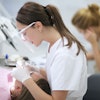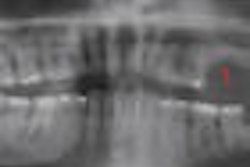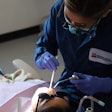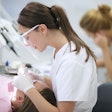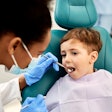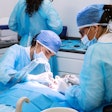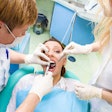A law passed April 15 allows hygienists in Maine to serve patients at any location without supervision by dentists.
Maine is hard-pressed for dental care and this legislation has expanded the scope of practice, said Jean Conner, president of the American Dental Hygienists Association.
Hygienists have the ability to reach more underserved communities, and from there they can make references that bring more people into the system, she said.
So how will this new legislation affect dentists' bottom line?
"I don't think our dentists will lose patients because of this bill," explained John Bastey, director of government affairs at the Maine Dental Association. "People will not sever ties with dentists they have been going to for 20 years for cheaper primary care."
It might improve access to care for people who do not have a dentist, but it will be a couple of years before we can judge the true impact, Bastey concluded.
The following are the unsupervised services hygienists can provide:
- Interview patients and record complete medical and dental histories.
- Take and record the vital signs of blood pressure, pulse and temperature.
- Perform oral inspections, recording all conditions that should be called to the attention of a dentist.
- Perform complete periodontal and dental restorative charting.
- Perform all procedures necessary for a complete prophylaxis, including root planing.
- Apply fluoride to control caries.
- Apply desensitizing agents to teeth.
- Apply topical anesthetics.
- Apply sealants.
- Smooth and polish amalgam restorations, limited to slow speed application only.
- Cement pontics and facings outside the mouth.
- Take impressions for athletic mouth guards and custom fluoride trays.
- Place and remove rubber dams.
- Place temporary restorations in compliance with the protocol adopted by the board.
- Apply topical antimicrobials, excluding antibiotics and including fluoride, for the purposes of bacterial reduction, caries control and desensitization in the oral cavity.
If independent practitioners see a patient who requires care beyond their area of expertise, they are legally obligated to refer that patient to a dentist.



